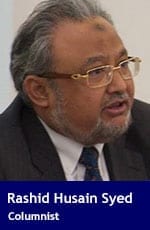 It was a political decision, a compromise between the differing oil producers.
It was a political decision, a compromise between the differing oil producers.
Last Thursday, after extended deliberations, debate and heated arguments, the Organization of Petroleum Exporting Countries (OPEC) and its allies in the extended OPEC+ finally opted to increase their crude oil output by 500,000 barrels per day (bpd) from January 2021. And every month until March 2021, they agreed they would meet to decide subsequent monthly increments, to a maximum of 500,000 bpd.
The agreed output increment for January 2021 was less than the 1.9 million bpd decided earlier. But to be fair, this was still an increment. In view of the existing market, not all within the expanded OPEC+ wanted any incremental increase. But some were impatient to do expand production.
TASS quoted anonymous sources saying Saudi Arabia favoured an extension of the current level of production cuts, while Russia favoured a gradual increase in production beginning in January.
And before agreeing to changes, the United Arab Emirates wanted assurances that all other OPEC members complied.
A compromise was required, so OPEC+ acquiesced.
There was a definite sense of drama during the ministerial gathering. It began to unfold when, after the initial meeting on Monday, the next round was deferred to Thursday instead of Tuesday as scheduled. To bridge the gap between the three heavyweights, ministers needed more time for deliberations.
When the meeting began on Thursday, after two days of informal, behind-the-scenes talks, much was left to sort out. Then the session was delayed by another two hours. And when it finally started, chair Saudi Energy Minister Prince Abdulaziz bin Salman didn’t lead the meeting as is customary, Bloomberg reported.
The Saudi unease was apparent. And that could be the reason why the Saudi oil minister had to be urged by the participating ministers to continue in his role as chair of the OPEC and non-OPEC ministerial meeting.
He was praised for “his perseverance, diligence and extraordinary (efforts), as instrumental in helping counter the impacts of the COVID-19 pandemic and in stabilizing the oil market through the successful implementation of the Declaration of Co-operation (DoC) objectives,” the OPEC statement on the meeting said.
Conceding to the request, “Prince Abdulaziz bin Salman vowed to vigorously pursue sustainable oil market stability.”
Saudi Arabia was reportedly more upset with the U.A.E. After leaking the story to Energy Intelligence that the U.A.E. was weighing its options about staying within OPEC, representatives of the two countries confronted each other directly at the ministerial meeting. The U.A.E. wanted to pump more oil, claiming its quota was unfair. The U.A.E.’s compliance with its output quota was also seen wanting over the last few months. The Saudis were furious.
A gradual easing of the supply cuts falls short of market expectations. Before the meeting, most anticipated a full three-month delay to the 1.9 million bpd output increase. Yet Bloomberg reported the deal at least avoided a complete breakdown of OPEC+.
Fault lines within OPEC+ are becoming more visible. And it may not be easy for bin Salman to hold the fort for long.
What next? Are we heading to a free-for-all scenario – especially since U.S. President Donald Trump will soon leave the scene?
We can’t rule out anything – we’ll just have to wait and see.
Toronto-based Rashid Husain Syed is a respected energy and political analyst. The Middle East is his area of focus. As well as writing for major local and global newspapers, Rashid is also a regular speaker at major international conferences. He has been asked to provide his perspective on global energy issues by both the Department of Energy in Washington and the International Energy Agency in Paris.
For interview requests, click here. You must be a Troy Media Marketplace media subscriber to access our Sourcebook.
The views, opinions and positions expressed by columnists and contributors are the author’s alone. They do not inherently or expressly reflect the views, opinions and/or positions of our publication.


